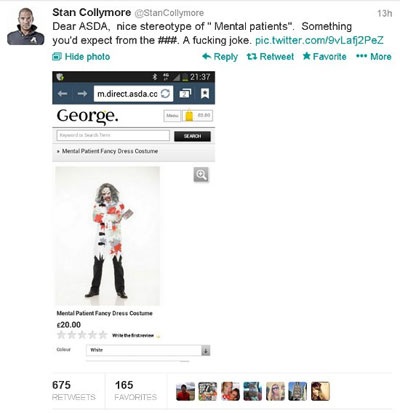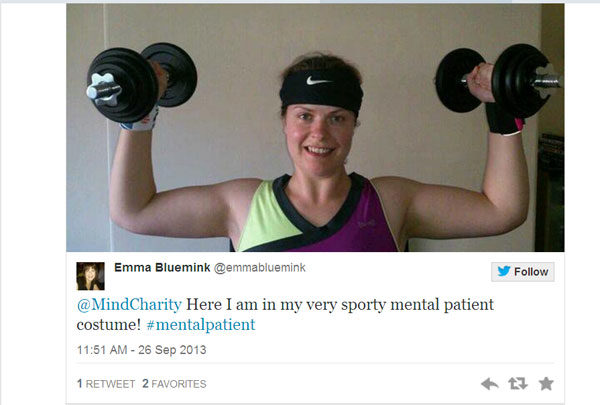At last week’s CFG dinner, Paul Farmer, chief executive of Mind said social media is breaking new ground in helping charities challenge damaging social attitudes. Civilsociety.co.uk explores how, using a recent example which forced Asda’s hand in just six hours.
Last month, one tweet created a storm which forced Asda to withdraw a product offensive to people suffering from mental health problems and donate £25k to Mind, in under six hours.
Here’s how it happened in six steps.
Step 1
5.00pm
One of Mind's supporters sees a 'mental patient' Halloween fancy dress costume advertised for sale on Asda’s website. They send an email to Asda protesting about it.
Step 2
7.00pm
The Mind supporter has not received a reply from Asda. They tweet about their concern and email a few friends about it.
Step 3
9.00pm
The Mind supporter’s friends, in turn, alert their networks about it. This reaches celebrities on Twitter, such as Mind ambassador Alastair Campbell and Stan Collymore, who tweet their disgust.

Step 4
10.15pm
Hundreds retweet Campbell’s and Collymore’s messages about Asda

Step 5
11.00pm
Asda withdraws the mental health patient Halloween costume, apologises and promises to make a sizeable donation to Mind.

Step 6
Next day
Mind supporters start and support a Twitter campaign using the #mentalpatient hashtag. They take over the debate populating Twitter with photos of themselves doing normal things like having a cup of tea. It trends on Twitter.

Other retailers, including Amazon withdrew similarly-inappropriate fancy dress costumes the following day.
Speaking at CFG’s dinner, Paul Farmer, chief executive of Mind, said social media is making if far easier to challenge and stigma attached to mental health, and take ownership of the agenda.
Reporting by Leon Ward (@Leonjward) and Vibeka Mair (@Vibeka).









